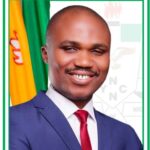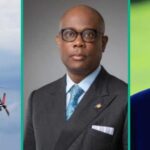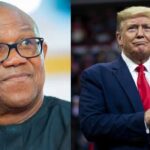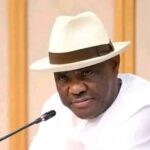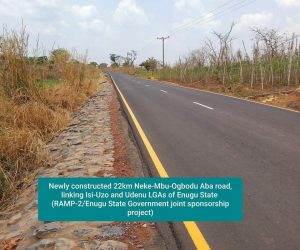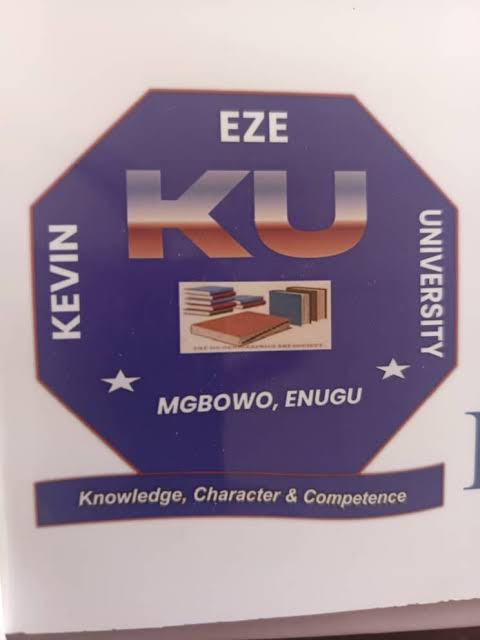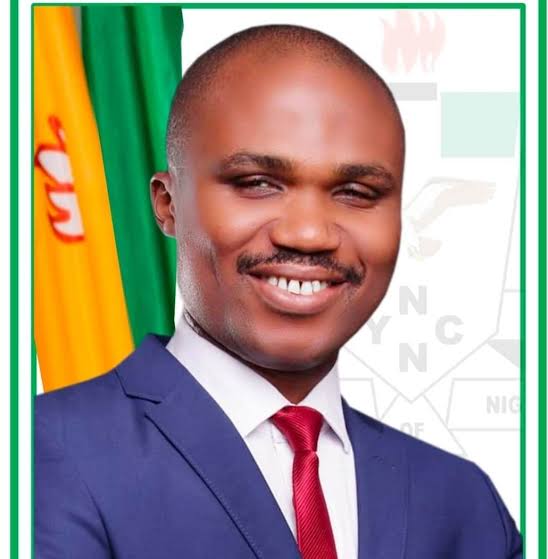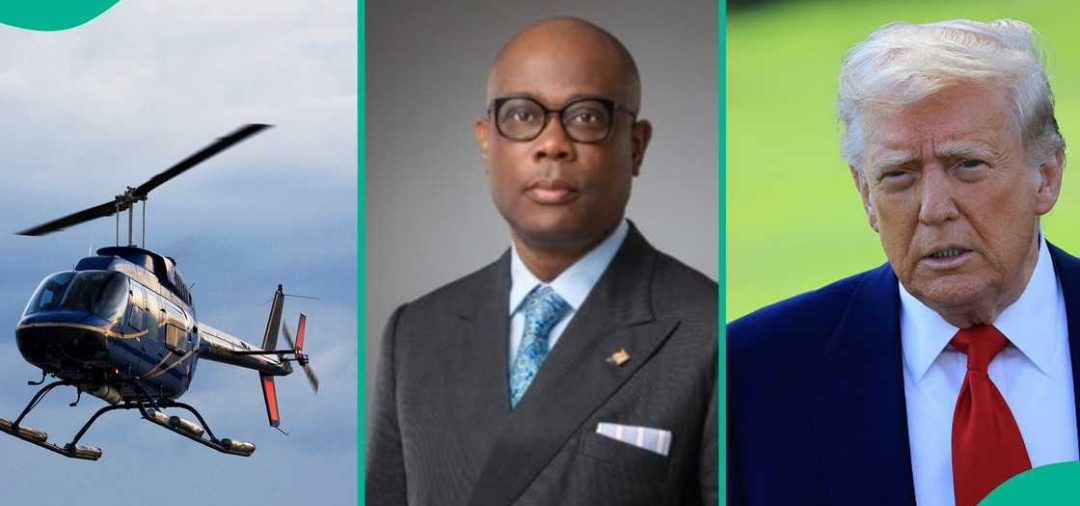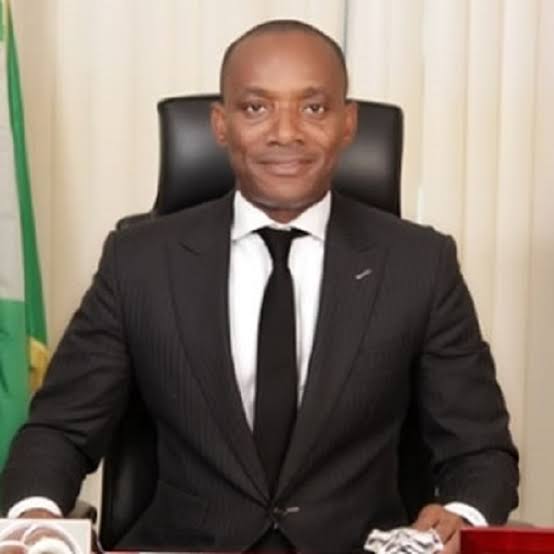 Frederick Lewis Donaldson, the Archdeacon of Westminster from 1937 to 1946 while rendering a sermon in Westminster Abbey, London on March 20, 1925, observed: “The Seven Social Sins are: Wealth without work; Pleasure without conscience; Knowledge without character; Commerce without morality; Science without humanity; Worship without sacrifice; Politics without principle.”Africa’s compounding political woes spanning the domains of leadership malfeasances, nonfeasance, unconstitutionalism, corruption and nepotic sociopolitical stratification boil down to the inculturation of politics without principle.
Frederick Lewis Donaldson, the Archdeacon of Westminster from 1937 to 1946 while rendering a sermon in Westminster Abbey, London on March 20, 1925, observed: “The Seven Social Sins are: Wealth without work; Pleasure without conscience; Knowledge without character; Commerce without morality; Science without humanity; Worship without sacrifice; Politics without principle.”Africa’s compounding political woes spanning the domains of leadership malfeasances, nonfeasance, unconstitutionalism, corruption and nepotic sociopolitical stratification boil down to the inculturation of politics without principle.
It is this despicable norm that has perpetuated desperate politicking and conscienceless leadership. The consequences are not far-fetched; a continent mired in abundance yet wretched, a deplorable paradox of poverty amidst plenty. Africa is a continent of deep polarizations along ethnocentric, religious and socioeconomic lines. A continent slithering down a precipice; where the ever-widening chasm between the wealthy 1% and the rest is on the brink of outstretching permissible limits.
The past great leaders of African and Nigerian origin were driven by humanistic principles that spun into their leadership character, ideologies, and consequently shaped their policy priorities. Nelson Madiba Mandela, the remarkable revolutionary who fought apartheid in South Africa to a standstill epitomized the principles of fairness, equity, social justice and forgiveness, inspite of formidable odds precipitated and fueled by white privilege. Iconic figures like Nnamdi Azikiwe, Sir Ahmadu Bello and Obafemi Awolowo are examples of Nigerians whose politics inclined towards patriotic nationalism and strengthened the nation’s emerging representative democracy. These men and other heroes past who struggled to snatch Nigeria away from the jaws of British imperialism and stood against military interruptions, are the embodiment of politics with principles. They contrived to inspire a bold and transparent leadership. A Government should not be jerky, edgy, exasperated, spasmodic or evasive. If it believes it has performed well, it should exhibit more confidence and tolerance of plurality of voices.
*In the contemporary time, against the prevailing tide, His Excellency Rt. Hon. Dr. Ifeanyi Ugwuanyi, the Executive Governor of Enugu State, stands tall as a politician whose leadership is firmly rooted in the principles of egalitarianism, justice, fairness and godliness. His mien glaringly typifies the pious image of a natural king of the plebeians, desperately yearning for a chance to mitigate the yawning gulf between the bourgeoisie and the proletariat, and ameliorate the excruciating pains of the minions while confronting an institutionalized serfdom brewing a poverty capital of the world in Nigeria. Buoyed by his deep convictions that premium should be placed on equality of the citizenry especially in the balancing of power, political space and accruable leverages, his demeanor appears so imbued on a tacit rescue mission in defence of the poorer majority.
 Justice has been done by writers, social critics and political commentators in documenting the two-term mileage of Governor Ugwuanyi in Enugu State; the sociocultural and political capital and historic nervecentre of Ndigbo. The former astute lawmaker took the reins at a precarious time when Nigeria was on a whizzing freefall into the hideous dungeon of economic recession. It was a time when statutory allocations to states were on a progressive decline and Enugu’s internally generated revenue (IGR) profile was far from robust.
Justice has been done by writers, social critics and political commentators in documenting the two-term mileage of Governor Ugwuanyi in Enugu State; the sociocultural and political capital and historic nervecentre of Ndigbo. The former astute lawmaker took the reins at a precarious time when Nigeria was on a whizzing freefall into the hideous dungeon of economic recession. It was a time when statutory allocations to states were on a progressive decline and Enugu’s internally generated revenue (IGR) profile was far from robust.
Governor Ugwuanyi did not only inherit these economic misfortunes and capricious permutations, he inherited a deeply polarized society, sharply divided along the lines of political affiliations, denominational sentiments, demography and socioeconomic standing. Rather than finding convenient subterfuges in these unfortunate realities, the Governor felt challenged, embraced the pressure, rolled up his sleeves and went to work for the people with whom he shares an eternal and sacred social contract. *In a capitalist world, where extremities of opulence live side by side with extremities of penury; Governor Ugwuanyi ‘s mission is to gravitate a mental immunity that shields those on the fringes of collapse in the socio-political melee, from the rampaging and marauding oppressors of the people; the dysfunctional elites, the feudal lords, the deceitful bourgeoisie, the perceived transmitters of the original fate of men, those who pose as intermediaries between God and man, those who have been on top of the food-chain for too long and those feigning to deputize for divinity.*
In over five years, the state has witnessed multifaceted transformations in infrastructure, health, education, Judiciary, civil service, tourism, constitutional democracy and sociological imperatives. Through a strategic and comprehensive grassroot development roadmap, Governor Ugwuanyi’s administration is rapidly closing up the perennial rural-urban abyss, a seemingly global phenomenon, infamous for its drastic implications in Nigeria.
For decades, urbanization has been the yardstick for measuring the success or failure of political regimes, in which case sparse elephant projects are accepted indicators of performance and progress. The suburbs and the rural areas, home to a sizable percentage of Nigeria’s demography have often taken the backseat in the political scale of preference; thus brewing a demobilised and demoralised rural populace. The lives of the poor at the grassroots who are mostly subsistence farmers, surviving on meagre incomes, hardly make the priority list of those at the helm.
The value of Nigeria’s rural population does not go beyond the circus of our seeming bastardized electoral system; the stomach infrastructure syndrome which draws its lifeblood from perhaps a sectional poverty stinging in perpetuity. *_“There’s no reason why children in inner cities or rural areas do not receive the same quality education or opportunities as those in suburbs or wealthy neighborhoods. If we truly believe in giving all citizens a chance to pursue happiness and pursue their goals, then we cannot continue to marginalize entire groups of people.” —Al Sharpton_*.
*For decades, the political elites have operated on two interpretations of democratic rulership—wanton looting of our common treasury and staging shadows of development in the metropolis in which they and their cohorts dwell. The rural areas are thus isolated in a separate universe of decadence where trickles of their rightful share of resources dry up on routes..This is a harsh reality sarcastically starring at the Nation’s foibles today. What could have been responsible for this provocative (rural- urban) dichotomy? Could it be as a result of government’s deprivative procrastination, profaning conspiracy of silence or outright discrimination?*
Fortunately, the words of *GEORGE ORWELL* could not have been truer when he opined that *” the further a society drifts from the truth, the more it will hate those that speak it”*.
Governor Ugwuanyi has made uncommon history and written his name in gold through his countless interventions at rewriting the ugly rural narrative in Enugu state. Long-forgotten communities in the state have been remembered with basic social amenities including electricity, healthcare, roads, education and jobs.
Gburugburu as he is fondly called, conceptualized, started and completed innumerable rural roads in Enugu State which serve to establish critical economic-oriented urban-rural linkages and unlock the development potentialities of these fringe territories. From the valleys of the Milliken Hill to Opi Nsukka dual carriageway; from Ebonyi River bridge Ikem to the bridges in Udenu ring roads; from Iva-Valley road in Enugu North LGA to Nkalagu-Eha Amufu road neglected for over 35 years; from Ukpabi-Nimbo-Ugbene-Ajima-Eziani road to Neke-Mbu-Ogbodu Aba-Obollo Etiti inter-community road linking Isiuzo and Udenu LGAs; from Inyi-Akpugoeze road in Oji River LGA to Ituku road in Awgu LGA and down to Amurri road in Nkanu West LGA to mention but a few, thousands of rural dwellers have been liberated from abandonement. Several other infrastructural projects at the grassroots such as pipe-borne water facilities and rural bypasses were constructed with Governor Ugwuanyi’s first tranche of 5 million naira donation to every community in Enugu State. Undoubtedly, the Enugu Governor has proved that economic growth is not a function of the wealth of the leaders but that of the well-being of the people.
Governor Ugwuanyi’s massive grassroots development drive is wiping away decades-worth of tears and anguish from the faces and lives of men, women, youths, and children who were ostensibly ostracized by their own people. Storms of renaissance and revolution have walloped the primary healthcare in Enugu State targeting the neglected and underprivileged people at the grassroots. Throughout his over 5 years in office, Governor Ugwuanyi has constructed and renovated several healthcare facilities in every rural local government area in the state, in addition to sustaining free maternal and child healthcare. In subscription to, and the epic reinvention of the agelong ‘health for wealth philosophy’, Governor Ugwuanyi has tackled rural economic obscurity through the ‘quality of life’ prism which has also snowballed into efforts in multiple sectors including agriculture and education sectors.
Agriculture is the mainstay of the rural economies, providing food for many dwellers in its subsistence mode and serving as a source of livelihood for numerous other mercantilists. Governor Ugwuanyi’s miraculous interventions in the agricultural sector take shape in grants and loans (IFAD and APPEALS), donation of free fertilizers, provision of modern technologies and equipment to enhance high-throughput practices and facilitate productivity. Young men and women are beginning to rediscover their passion for farming which has since assumed an attractive complexion and rewarding potentialities under Ugwuanyi’s Midas touch. This is restimulating healthy competition in the food segment of the markets, driving a wedge between the curse of monopoly and incongruous over-profitability.
Consequently, the low prices of food in Enugu has earned it an economic grandstanding among its peers on the survivability index. *Buoyed by the Governor’s philosophy of leadership probity, inclusivity and justice, the drive has been multi-sectoral, opening up new vistas of economic ground and human empowerment in even the remotest of terrains.*
The sociopolitical and economic imbalances definitive of the rural-urban dichotomy is exacerbated by unequal access to affordable and quality education. Governor Ugwuanyi has stayed the course in challenging this trend, through revitalization of primary and secondary educations in the grassroots and empowering the less privileged with scholarships. Across all levels of rural education, new classroom blocks and administrative buildings are being constructed, laboratories are being equipped to international standards, ICT is taking centre stage and teachers are being retrained. Reverting to its original multicampus structure, new facilities of the Enugu State University of Science and Technology are being constructed in Enugu North Senatorial Zone. The first ever degree-awarding tertiary institution in Education in the South East geopolitical zone is being established within the rural confines of Ihe in Awgu Local Government Area.
By these visionary undertakings, Governor Ugwuanyi is tapping into the endless pool of young rural talents to prepare new global leaders of the 21st century digital age.
In the Ugwuanyi era, rural and urban lives are equally important which explains the Governor’s massive and sustained investments in the security sector targeting all demographics. Besides the donation of hundreds of vehicles and equipment to the security agencies operational in the state, the Governor implemented other rural-oriented security initiatives such as the institution of 1700-personnel Forest Guards empowered with 260 motorcycles and 300 bicycles. He also repositioned the Vigilante/Neighbourhood Watch groups for improved structural and functional efficiency. A brand new 76 Mobile Force Squadron Facility was constructed by the Governor at Ekwegbe, Igbo-Etiti LGA. New Fire Service Stations were built in Igbo-Eze North, Nkanu West, Udi and Oji River as part of concerted efforts to secure rural lives and properties from mitigable disasters.
Governor Ugwuanyi’s grassroots development policies are precipitating the emergence of revolutionary theories of political governance through setting new precedents in the rural-urban sociological dynamics. He is being exemplary of how total and all-encompassing political leadership should be, and stimulating new healthy dialogue about our conscious and oblivious sociopolitical paradigms, norms, culture and legalities that forment rural-urban stratification with dire consequences.
The Ugwuanyi model, which is pulling thousands of the underprivileged population in Enugu State into prosperity, deserves to be studied and amplified all over the country for greater impact. Our society will never move forward until we begin to conscientiously rebalance the rural-urban scale, giving everyone equal access to God’s gift of nature, opportunities and dividends of democracy. Let the celebrations in the hinterlands of Neke and Mbu in Isi-Uzo LGA and that in Ogbodu Aba, in Udenu LGA triggered by a newly constructed and asphalted 22km Neke-Mbu-Ogbodu Aba inter-community link road continue. Echoes of your deafening gratitude elicit and resonate with the mood of the good people of Uzo Uwani LGA as they marvel at the 26.665km Ukpabi- Nimbo-Ugbene Ajima-Eziani road ably delivered by the Ugwuanyi administration.
*Steve Oruruo is the Special Adviser to the Governor of Enugu State on Information*


